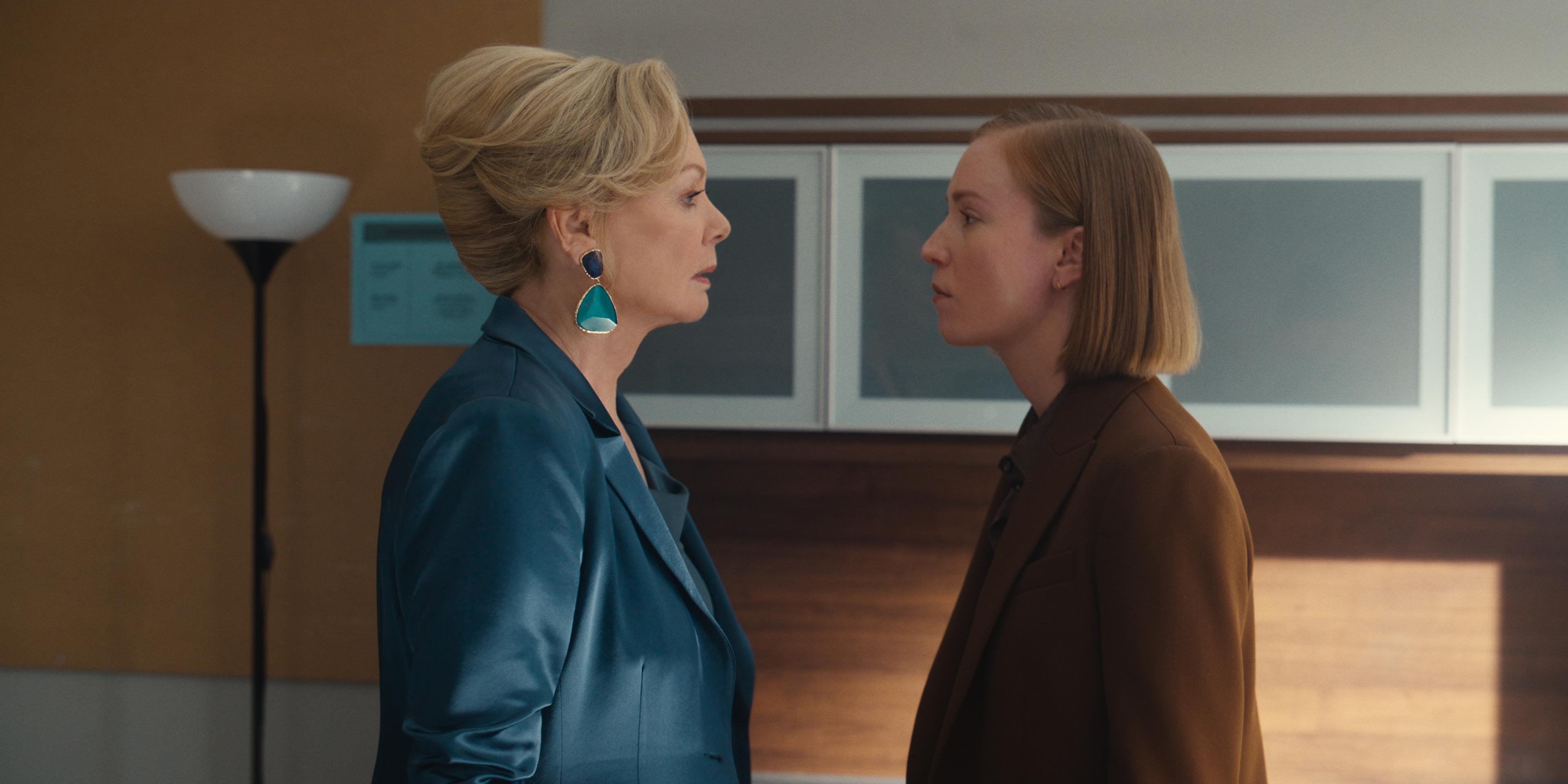Good things come to those who wait. And when it comes to Hacks, British audiences really have had to wait: season two aired on Prime Video in 2022 but it’s only this year that we’ve been able to (legally) enjoy further instalments. However, there is a silver lining to this lengthy delay. After the famine comes the feast. It’s time to overdo it; to wallow in not one but two seasons of the sharpest comedy on television. The third season finally showed up (along with, helpfully for latecomers, seasons one and two) on Sky Max earlier this year. And now, season four is here, as savagely hilarious as ever.
It’s surely beyond debate that misanthropic Vegas stand-up Deborah Vance (Jean Smart) and her jaded younger joke-writer Ava Daniels (Hannah Einbinder) are the most entertaining toxic, co-dependent double act on television. What’s also notable, though, is that in their love, their hatred, their fury and their mutual redemption, they’re performing a valuable societal service. As Western democracies continue to flail hopelessly through various depressing iterations of culture war, Deborah and Ava are that rarest of things: a boomer and a Gen-Zer teaching each other some valuable life lessons.
One of the reasons watching them together is such a pleasure is that in many ways, they’re both right. Deborah is deliciously cutting; an antidote to Zoomer prissiness. Ava is sensitive and attuned to all the right things. Ava is dragging Deborah in the right direction, even when she doesn’t realise it. But Deborah is resplendently resistant, even as she moderates her own behaviour. There’s a brilliant, telling scene in season three where Deborah blows out a room full of previously esteemed older male comics because of their dumb sexism. She’s furious with the (absent) Ava, because she has ruined her evening by getting in her head. She has made her woke by osmosis.
But the truly glorious thing about Hacks is that every fibre of its being undercuts the hugging and learning impulse that sabotages many brilliant sitcoms. It is quite magnificently unsentimental. And if you thought that after seasons one to three, quite frankly, you ain’t seen nothing yet. Season four is brutal. At the end of season three (spoiler alert) Deborah betrays Ava. In return, Ava uses information about Deborah’s behaviour to blackmail her into keeping her on as head writer on the super high-stakes prime-time chat show that Deborah – in fulfillment of a lifelong dream – is about to start hosting. It’s an exquisite contrivance: the pair are simultaneously reliant on each other professionally and reaching new levels of toxic loathing in private.
In season three, Ava issues Deborah with an amusingly delicate list of demands underpinning their continuing collaboration. In true Gen Z fashion, she establishes boundaries (for a start, Deborah will no longer be allowed to make jokes about the size of Ava’s hands). By season four, the gloves are off. It generally takes a lot for American comedies to drop the c-bomb. But that’s where we are. “She just called you the c-word” gawps poor, harassed manager Jimmy (Paul W Downs) at one point. “And not in a cool RuPaul way but in an angry boomer way.”
It gets better – that is to say, worse. Deborah might have to tolerate Ava’s presence on set but that doesn’t mean she has to make nice. She starts taking the show in deliberately contrary, populist directions. She flaunts the progressive conventions Ava has started to establish, at one point refusing to hire a female comic because she’s pregnant (“If the position is still open in 18 years, she can have it”). She launches a writer’s room road trip with a full frontal assault on Ava’s appearance (“You’re not funny enough to dress like Adam Sandler”). She tears up the rule book in front of Ava’s horrified eyes and it’s gripping and bracing to watch.

And yet, there’s still love, all the more acute for being so thoroughly eviscerated. Much like the real-life culture wars, the relationship plays out as a series of cross-generational misunderstandings between two parties who need each other much more than they’d care to admit. And this is where Hacks’s resistance to mawkishness really pays off - the rare moments of tenderness feel truly earned and truly affecting as a result. When Deborah finds herself in A&E (it involves a gay club, a cage dance and some poppers), Ava drops everything and races to her side. As they sit in the hospital waiting room watching Deborah’s show (which broadcast earlier), they instinctively, unconsciously link hands. It’s a tiny, intimate moment, rendered seismic by its context.
Hacks is that most Gen Z of things: a meta comedy. It shows its workings and trusts its audience. It’s also that most boomer of things – a gag show. It never forgets for a second that it’s supposed to be funny, and funny doesn’t always care about your feelings. Accordingly, it achieves something both televisionally and culturally perfect. In its waspishness and its cleverness, in its cynicism and emotional acuity, it’s actually unifying. It’s two generations - and indeed two whole value systems – talking to each other; getting on each others’ nerves; finding ways to get past that and try again. If that wasn’t worth waiting a couple of years for, it’s hard to say what is.
‘Hacks’ is streaming now on Sky and NOW







